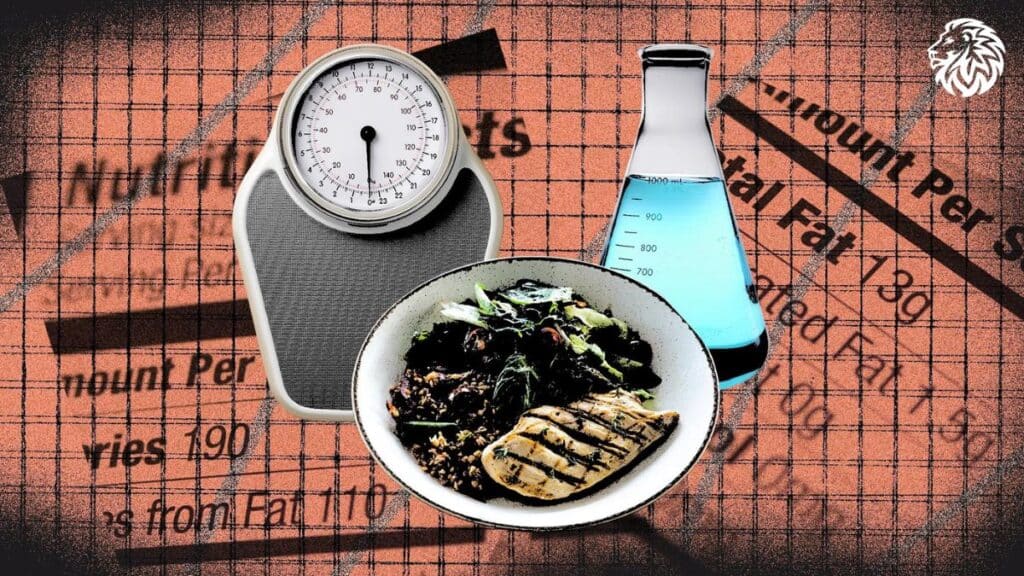Today, many people care a lot about how they look and staying healthy. So, losing weight is often at the top of their goals. A popular way to lose weight is to go to the gym or do different kinds of exercises. But, this way of thinking has a lot of wrong ideas and incomplete plans. Many people think that just exercising is the magic way to lose weight and keep it off. This idea is good, but it doesn’t cover everything you need to know about managing weight.
To really get why just exercising might not be the best solution for losing weight, we need to look into the science of weight management. Losing weight isn’t just about physical changes. It’s also about biological, nutritional, and psychological factors. Exercise is important for good health and can help with weight loss, but it’s just one part of a bigger picture. Things like what you eat, your metabolism, your lifestyle, and your mental health are all important for losing weight and staying healthy.
So, managing weight the right way isn’t just about burning calories with exercise. It’s about making a balanced and lasting lifestyle that includes healthy eating, regular exercise, and taking care of your mental health. This article wants to clear up the myth that just exercising is enough to lose weight. It wants to show how important it is to have a complete approach to health and fitness.
The Science of Weight Loss

Understanding Calories: Intake vs. Burn
At the heart of weight loss science is the basic principle of calories. A calorie is a unit of energy, and the balance between the calories consumed and the calories burned determines a person’s weight. To lose weight, one must create a caloric deficit, meaning burning more calories than are consumed.
- Caloric Intake: This refers to the calories a person consumes through food and drinks. Every individual’s caloric needs vary based on factors like age, sex, weight, height, and activity level. Understanding which foods are high in calories and which are more nutrient-dense is crucial for managing intake.
- Caloric Burn: This is about the calories expended through daily activities and bodily functions. The body burns calories through basal metabolic rate (BMR), the energy required for vital functions at rest, and through physical activities, including exercise and daily tasks.
The balance between these two aspects determines whether an individual gains, loses, or maintains weight. Simple adjustments to this balance can lead to significant changes in weight over time.
The Role of Metabolism in Weight Management
Metabolism plays a critical role in weight loss and management. It’s the process by which the body converts what you eat and drink into energy. Several factors influence metabolic rate, including:
- Basal Metabolic Rate (BMR): This is the number of calories required to keep your body functioning at rest. BMR is influenced by several factors, including age, sex, genetics, muscle mass, and body size.
- Thermic Effect of Food (TEF): The body uses energy to digest food and absorb nutrients, which accounts for a portion of the daily energy expenditure.
- Physical Activity: This includes not just exercise but all movement, like walking, household chores, and even fidgeting.
Understanding metabolism is essential in weight management. For instance, muscle tissue burns more calories at rest compared to fat tissue. Thus, increasing muscle mass through strength training can boost BMR, aiding in weight loss and management. Additionally, certain foods and activities can have a temporary effect on the metabolic rate, influencing how efficiently the body burns calories.
While exercise is a critical component of weight management, it’s the synergy between caloric intake, caloric burn, and metabolism that truly drives weight loss. Effective weight management strategies should, therefore, consider all these aspects to create a balanced and sustainable approach.
Exercise: Its Benefits and Limitations

The Benefits of Regular Exercise
Physical Health Benefits:
- Cardiovascular Health: Regular exercise strengthens the heart and improves circulation, reducing the risk of heart disease and stroke.
- Muscle Strength and Endurance: Engaging in strength training and aerobic exercises builds muscle strength and endurance.
- Bone Health: Weight-bearing exercises like walking, jogging, and strength training can improve bone density and reduce the risk of osteoporosis.
- Weight Management: Exercise burns calories, which can help in creating a calorie deficit needed for weight loss, and maintains muscle mass, which is crucial for a healthy metabolism.
- Improved Immune Function: Moderate exercise can boost the immune system, helping the body to fight off infections.
Mental Health Benefits:
- Stress Reduction: Physical activity increases the production of endorphins, which are natural mood lifters, helping to reduce stress and anxiety.
- Improved Sleep: Regular exercise can help regulate sleep patterns, leading to more restful sleep.
- Increased Self-Esteem: Achievements in physical fitness can boost self-confidence and body image.
- Cognitive Benefits: Exercise has been linked to improved brain function, including sharper memory and thinking.
Limitations of Relying Solely on Exercise for Weight Loss
The Compensation Effect: Increased Appetite and Overeating
- Increased Appetite: Exercise can increase appetite as the body seeks to replenish the energy expended, leading some individuals to consume more calories than they burned off.
- Overestimating Calorie Burn: People often overestimate the number of calories burned through exercise, leading to overeating.
- Emotional Eating: For some, exercise can trigger emotional eating as a reward, undermining the calorie deficit needed for weight loss.
Exercise and its Impact on Resting Metabolic Rate
- Adaptive Thermogenesis: In response to long-term exercise regimens, the body may adapt by slowing down its resting metabolic rate as a conservation measure.
- Muscle Mass vs. Fat Loss: While exercise, especially strength training, increases muscle mass, it might not always lead to a significant reduction in fat if not combined with a proper diet.
- Plateau Effect: Over time, the body becomes more efficient at performing the same exercises, burning fewer calories for the same amount of work.
The benefits of exercise for overall health are indisputable, its effectiveness for weight loss can be limited when not combined with other lifestyle modifications, particularly dietary changes. Understanding these limitations is crucial for setting realistic weight loss goals and strategies.
Nutrition: The Critical Component

The Importance of a Balanced Diet
A balanced diet is essential for providing the body with the necessary nutrients to function optimally, maintain energy levels, and support a healthy weight. It involves consuming a variety of foods in the right proportions to achieve and maintain a healthy body weight and overall wellness.
- Diverse Nutrient Sources: A balanced diet includes a mix of carbohydrates, proteins, fats, vitamins, and minerals. Each plays a unique role in bodily functions, and a deficiency or excess of any can impact health.
- Energy Balance: Consuming the right amount of calories to match the body’s energy needs is crucial. Too few calories can lead to nutrient deficiencies and loss of muscle mass, while too many can result in weight gain.
Macronutrients and their roles
- Carbohydrates: They are the body’s primary energy source. Complex carbohydrates like whole grains, fruits, and vegetables also provide fiber, which aids digestion and satiety.
- Proteins: Essential for building and repairing tissues, including muscle, skin, and bone. Proteins also play a key role in hormonal and enzyme functions.
- Fats: Vital for brain health, energy, absorption of certain vitamins, and the maintenance of cell membranes. Choosing healthy fats, such as those found in fish, nuts, and avocados, is important for overall health.
The Impact of Processed Foods vs. Whole Foods
- Processed Foods: Often high in added sugars, unhealthy fats, and sodium, which can contribute to various health issues, including obesity, heart disease, and diabetes.
- Whole Foods: Natural or minimally processed foods like fruits, vegetables, whole grains, and lean proteins are more nutrient-dense and less calorie-dense than processed foods, aiding in weight management and overall health.
Portion Control and Mindful Eating
- Portion Control: Understanding and controlling portion sizes is crucial for maintaining a healthy weight. It helps in consuming an appropriate amount of calories.
- Mindful Eating: This practice involves paying attention to hunger and fullness cues, enjoying meals without distraction, and understanding the difference between physical hunger and emotional eating.
The Myth of Out-Exercising a Bad Diet
- Caloric Density of Foods: Some high-calorie foods can easily undo the calorie deficit achieved through exercise. For example, a single piece of cake or a fast-food meal can contain more calories than one burns in a standard workout.
- Nutrient Quality: A diet lacking in essential nutrients can lead to health problems, regardless of calorie intake or exercise habits.
- Sustainable Habits: Relying solely on exercise for weight loss is often unsustainable. A combination of healthy eating and regular physical activity is more effective for long-term weight management.
Nutrition is a critical component of weight loss and overall health. A balanced diet combined with portion control and mindful eating practices can significantly impact weight management, debunking the myth that exercise alone is sufficient. Understanding the roles of macronutrients and the impact of food choices is key to achieving and maintaining a healthy weight.
Other Key Factors in Sustainable Weight Loss

The Role of Sleep in Weight Management
- Sleep and Hormone Regulation: Adequate sleep is crucial for the regulation of hormones like ghrelin and leptin, which control hunger and fullness cues. Lack of sleep can disrupt this balance, leading to increased appetite and potential weight gain.
- Impact on Metabolism: Poor sleep can negatively affect the body’s metabolism, reducing its ability to process glucose efficiently, which can lead to increased fat storage.
- Energy Levels and Exercise: Quality sleep is essential for maintaining energy levels. Fatigue due to poor sleep can lead to reduced physical activity and a lower overall caloric burn.
- Sleep and Emotional Eating: Sleep deprivation can also increase stress and emotional instability, potentially leading to emotional eating or poor dietary choices.
Stress and Weight Gain: The Connection
- Cortisol and Appetite: Stress triggers the release of the hormone cortisol, which can increase appetite and cravings for high-calorie, fatty, and sugary foods.
- Stress-Induced Behaviors: Chronic stress can lead to behaviors that contribute to weight gain, such as emotional eating, binge eating, and decreased motivation to exercise.
- Impact on Digestion and Metabolism: High stress levels can affect the body’s digestive system and alter metabolism, sometimes leading to weight gain.
The Importance of Consistency and Lifestyle Changes
- Building Sustainable Habits: Long-term weight loss is more about creating sustainable, healthy habits rather than temporary diets or exercise fads. Consistency in healthy eating, regular exercise, and other beneficial lifestyle choices is key.
- Lifestyle Over Quick Fixes: Adopting a lifestyle approach to weight management, which includes balanced nutrition, regular physical activity, adequate sleep, and stress management, is more effective than seeking quick fixes.
- Adaptability and Resilience: Being adaptable in the approach to weight management, such as finding different types of physical activities that one enjoys or learning to prepare healthy meals, increases the likelihood of maintaining these habits long-term.
- Realistic Goal Setting: Setting achievable and realistic goals helps in maintaining motivation and prevents feelings of failure or frustration, which can often lead to abandonment of weight loss efforts.
Sustainable weight loss is influenced by a combination of factors beyond diet and exercise. The integration of adequate sleep, effective stress management, and the development of consistent, healthy lifestyle changes play a crucial role in achieving and maintaining a healthy weight. Acknowledging and addressing these elements can lead to more successful and sustainable weight management outcomes.
The Synergy of Exercise and Diet

Integrating Exercise and Nutrition for Optimal Results
The synergy between exercise and diet is crucial for achieving and maintaining a healthy weight and overall wellness. When these two components are effectively integrated, they work in harmony to create a more efficient and sustainable path to weight loss and health improvement.
- Complementary Effects: While exercise helps in burning calories, increasing muscle mass, and improving metabolism, a balanced diet ensures that the body gets the necessary nutrients to fuel these activities and recover properly.
- Enhanced Weight Loss and Fitness Goals: A combination of diet and exercise has been shown to be more effective for weight loss than either approach alone. Exercise helps to preserve lean muscle mass during weight loss, which is essential for maintaining a higher metabolism. Simultaneously, a healthy diet ensures that the body has the right fuel to perform and recover from exercise.
- Holistic Health Benefits: Together, exercise and a balanced diet contribute to improved cardiovascular health, stronger bones, better mental health, and reduced risks of various chronic diseases.
Overcoming Challenges and Setbacks

Common Obstacles in Weight Loss Journeys
- Lack of Immediate Results: Many individuals expect quick results and can become discouraged when weight loss is gradual. Understanding that sustainable weight loss is a slow and steady process is crucial.
- Plateaus: It’s common to reach a point where weight loss stalls. This plateau can be frustrating and demotivating.
- Emotional Eating: Stress, anxiety, and other emotions can lead to eating for comfort rather than hunger, which can hinder weight loss efforts.
- Time Management: Finding time to prepare healthy meals and exercise regularly can be challenging, especially with a busy lifestyle.
- Inconsistent Habits: Fluctuating between strict dieting and overeating or inconsistent exercise routines can impede progress.
- Social and Environmental Influences: Social gatherings, work environments, and family habits can pose challenges to maintaining a healthy diet and exercise routine.
Tips for Staying Motivated and Overcoming Plateaus
- Set Realistic Goals: Setting achievable, short-term goals can provide a sense of accomplishment and keep motivation high.
- Track Progress: Keep a journal or use apps to track food intake, exercise, and weight changes. Monitoring progress can be a powerful motivator.
- Find Support: Joining a weight loss group, enlisting a friend or family member for support, or consulting a professional can provide encouragement and accountability.
- Mix Up Your Routine: Changing your exercise routine or diet can help overcome plateaus. Trying new activities or recipes can also keep things interesting.
- Focus on Non-Scale Victories: Celebrate achievements that aren’t related to the scale, like improved endurance, better fitting clothes, or healthier eating habits.
- Manage Stress: Engaging in stress-reducing activities like yoga, meditation, or hobbies can help control emotional eating.
- Plan Ahead: Preparing meals in advance and scheduling workout times can help maintain consistency.
- Forgive Slip-Ups: Understand that setbacks are normal. Instead of feeling guilty, learn from them and move forward.
- Educate Yourself: Learning more about nutrition, exercise, and the science of weight loss can provide new insights and strategies.
- Stay Flexible: Be open to adjusting your goals and strategies as needed. Flexibility can help maintain progress even when life gets unpredictable.
Overcoming the challenges and setbacks in weight loss journeys is a crucial part of the process. It involves a combination of realistic goal-setting, continuous learning, and adaptability. Understanding that weight loss is a journey with ups and downs can help maintain motivation and lead to long-term success.
Conclusion
Recap of Key Points
- Understanding Weight Loss: Weight loss is a complex process that goes beyond just exercising. It involves a balance of caloric intake and expenditure, and the role of metabolism is crucial.
- Exercise Benefits and Limitations: Regular physical activity is essential for overall health and can aid in weight loss but has limitations if not combined with proper nutrition and other lifestyle factors.
- Critical Role of Nutrition: A balanced diet, focusing on whole foods and proper macronutrient balance, is key to effective weight management.
- Beyond Diet and Exercise: Factors like quality sleep, stress management, and consistent lifestyle changes play a significant role in sustainable weight loss.
- Synergy of Diet and Exercise: The combination of a healthy diet and regular exercise is more effective for long-term weight loss and overall health.
- Overcoming Challenges: Weight loss is a journey filled with obstacles, but with realistic goal-setting, support, and adaptability, these challenges can be overcome.
Encouraging a Holistic Approach to Weight Loss
This article underscores the importance of a holistic approach to weight loss and maintenance. Understanding that weight loss is not solely dependent on exercise or diet, but a combination of various factors including lifestyle and mental health, is critical. A holistic approach ensures not just a healthier weight but also overall well-being.
Final Thoughts and Encouragement for the Reader
If you’re on a weight loss journey, remember that it’s a path of self-discovery and improvement. Each step, no matter how small, is a move towards a healthier you. Embrace the journey with patience and persistence, and be open to learning and adapting as you go. Celebrate your successes, learn from setbacks, and always keep your overall health and happiness in focus. You have the power to create lasting change, and this journey is about much more than just numbers on a scale – it’s about building a healthier, happier life.







